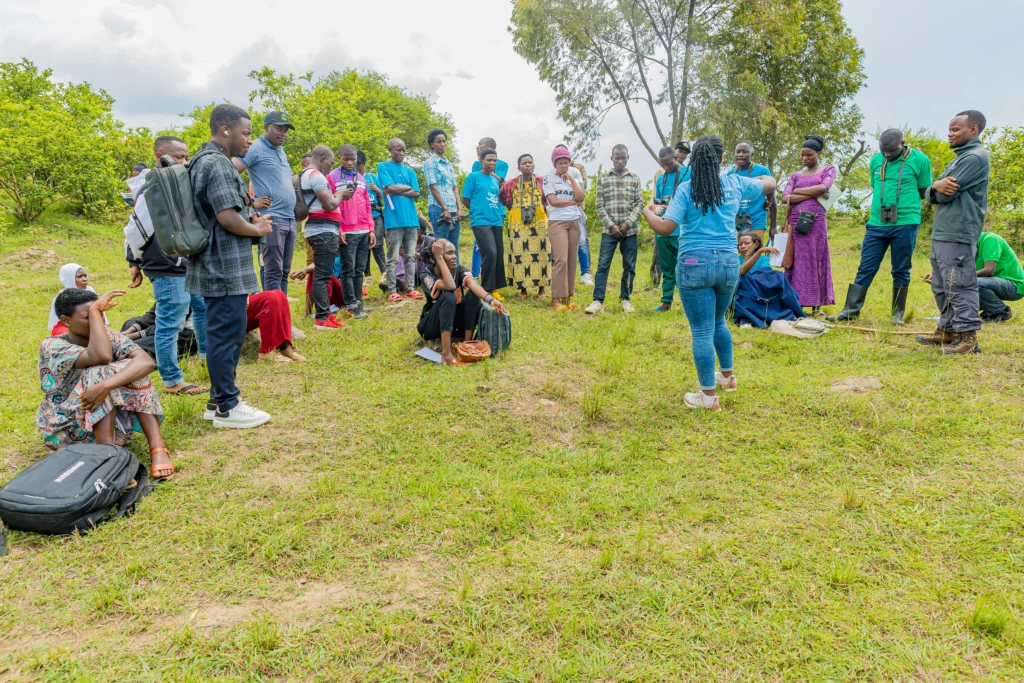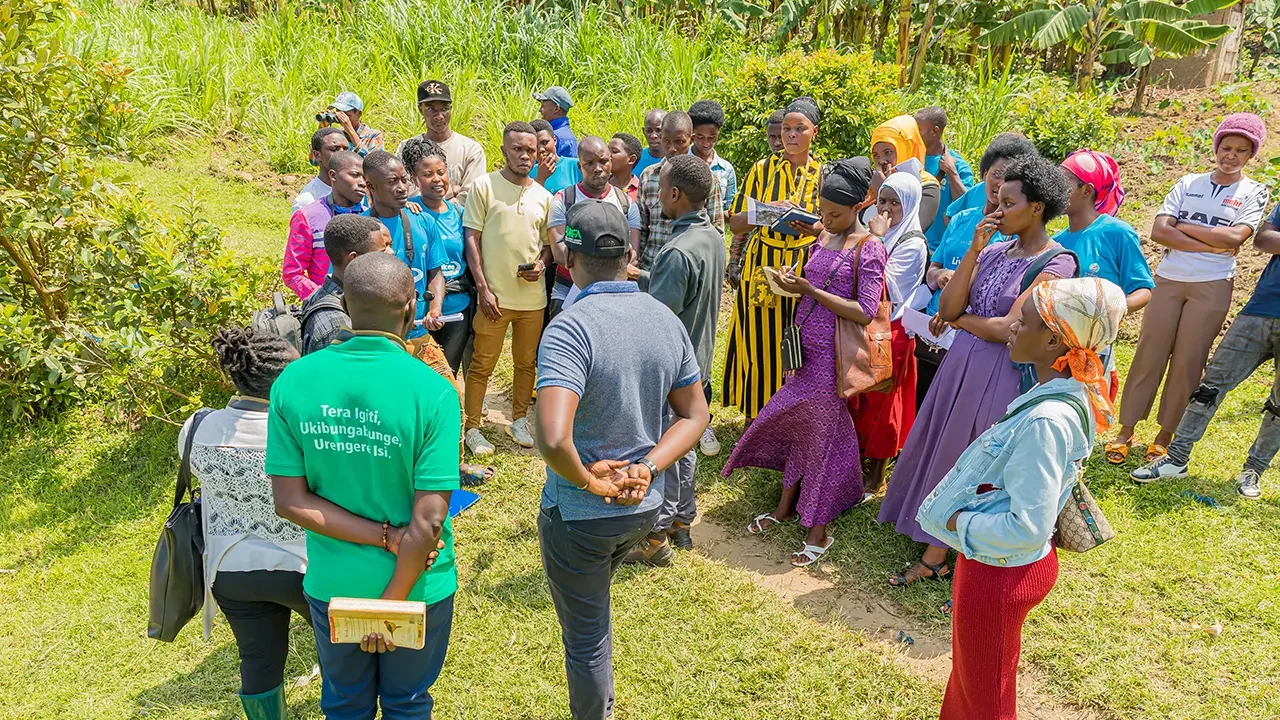In Rwanda’s Rutsiro district, an inspiring initiative is engaging “Future Lake Managers” in biodiversity monitoring around Lake Kivu. As part of the Living Lakes Biodiversity and Climate Project (LLBCP), led by the Albertine Rift Conservation Society (ARCOS), young participants are embracing citizen science to protect and preserve the lake’s ecosystem while gaining valuable hands-on experience.
Lake Kivu is a lifeline for approximately two million people within its drainage basin, providing over 20,000 tons of fish annually and supporting the livelihoods of nearly 500,000 people across Rwanda and the Democratic Republic of Congo (DRC). In addition to fisheries, local communities depend on the lake for transport and tourism. However, Lake Kivu faces significant threats from unsustainable land use, illegal mining, intensive agriculture, and the growing impacts of climate change.

Reflecting on this youth-led initiative, Aline Francoise Mbabazi, Project Manager, stated: “Engaging youth in conservation empowers the next generation to take ownership of the natural resources their communities depend on. By involving them in biodiversity monitoring, we are not only raising awareness but equipping them with practical skills to protect Lake Kivu’s biodiversity.”
Through hands-on training in data collection, species identification, and environmental monitoring, these future lake managers are developing valuable skills and a deep sense of responsibility to protect their local ecosystem. Bonavanture Hakomeyimana, one of the participants, shared: “This experience has opened my eyes to how fragile our ecosystem is and how much impact we can have as individuals. I learned to identify several species, like the malachite kingfisher, different types of fish, and even crabs, which I never paid much attention to before. I now understand the role that citizens can play in conservation.”
Another participant, Anajet Nyiranshimiyimana, added: “I used to think conservation was only for scientists, but this program has shown me that everyone, especially youth, has a role in protecting our environment. The skills we’ve gained are things we can apply directly in our communities.”

Beyond youth involvement, the LLBCP Project encourages broader community participation, including local cooperatives and farmers, in sustainable agricultural practices and land restoration. The project also supports livelihoods through initiatives like the Nature-Based Community Fund (NBCF), which funds small-scale green projects, and the promotion of low-impact technologies such as solar-powered irrigation and eco-friendly cooking stoves.
By equipping these “Future Lake Managers” with knowledge and practical experience, ARCOS is fostering a generation committed to the sustainable stewardship of Lake Kivu. This youth-driven approach signals a promising future for community-led conservation efforts in Rwanda, ensuring that Lake Kivu remains a resilient natural resource for generations to come.


